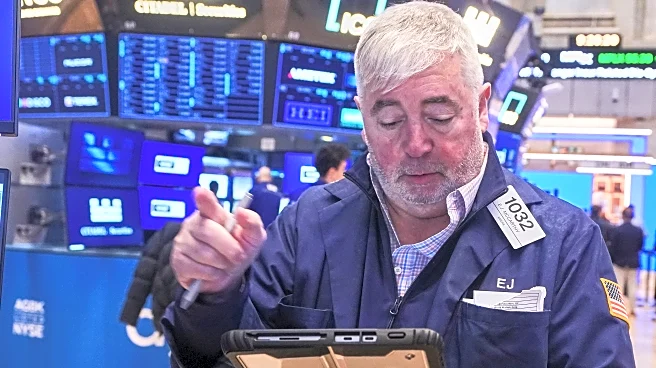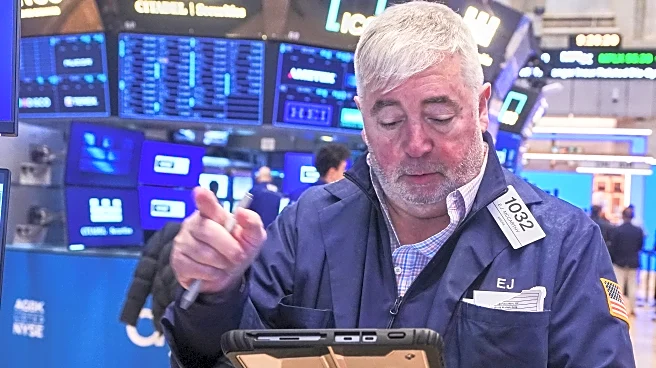What's Happening?
AutoRek, a financial technology company, has emphasized the need for traditional banks to integrate stablecoin infrastructure to remain competitive in the evolving digital finance landscape. With stablecoins
facilitating significant transaction volumes and embedding the dollar deeper into digital finance, banks face a choice between adapting to these innovations or potentially facing decline. The U.S. Treasury has indicated plans to use stablecoins to maintain dollar dominance, while stablecoin issuers are becoming major buyers of U.S. debt. This shift could reduce reliance on traditional correspondent networks for USD transactions, as value can move directly on blockchain networks. Banks that adapt can serve as bridges between traditional finance and digital assets, ensuring their infrastructure can meet the demand stablecoins bring.
Why It's Important?
The integration of stablecoins into traditional banking systems is crucial for banks to stay relevant as digital finance grows. Stablecoins offer faster transaction speeds and lower costs, challenging traditional banking models. Banks that fail to adapt may lose market share to fintech companies and other digital finance entities. The regulatory landscape is also evolving, with new regulations like CASS 16/17 in the UK broadening safeguarding expectations. Banks must ensure their infrastructure can handle the compliance and reconciliation demands of stablecoins to maintain competitiveness. The shift towards digital transactions requires banks to prioritize speed and efficiency, potentially reshaping cross-border payment strategies.
What's Next?
As stablecoin legislation advances in the U.S. and the EU, banks will need to decide whether to focus on regulatory arbitrage or build universal compliance frameworks. The choice will impact their ability to innovate and manage operational risks. Banks that successfully integrate stablecoin infrastructure can capitalize on the growing digital finance market, while those that lag may face increased competition and reputational risks. The development of universal compliance systems could provide a long-term, reliable approach to innovation, ensuring banks can navigate the evolving regulatory landscape and maintain customer confidence.









